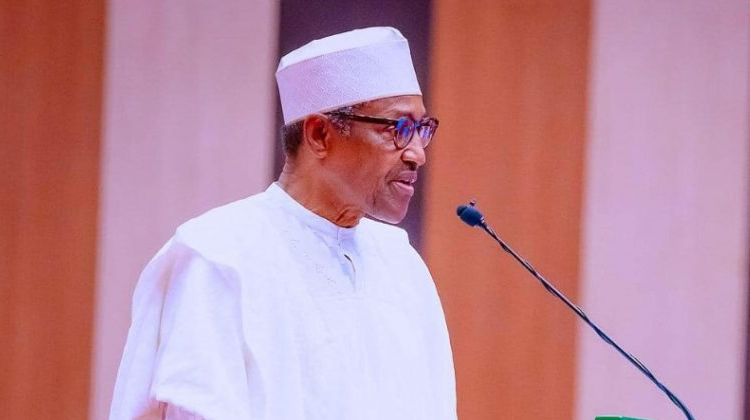The new tax regulations in Nigeria have been referred to as President Muhammadu Buhari’s “parting tax gift” to the populace by tax expert Taiwo Oyedele.
At PricewaterhouseCoopers (PWC), Oyedele is the Fiscal Policy Partner & Africa Tax Leader.
New Fiscal Policy Measures (FPM) were recently announced by the federal government in a circular that Zainab Usman, the minister of finance, budget, and national planning, signed.
Oyedele provided an overview of the new legislation and their highlights in a commentary on his Twitter.
Why Nigerians Were Ordered To Submit Self-Certification Forms – Tax Expert
He said that the ECOWAS Common External Tariff 2022–2026 will be implemented in conjunction with the Supplementary Protection Measures (SPM).
Subject to a 90-day grace period for importers who had opened Form M prior to 1 May 2023, the changes take effect on that date.
The list includes things like rice, woven fabrics, ceramic tiles and sinks, steel, aluminum cans, compressed or liquified gas storage containers, and steel.
Others include smart phones, new and old passenger cars, washing machines, electric generators, rotary converters, and electricity meters.
According to Oyedele, the applicable duties for the majority of the commodities are unchanged from the 2022 FPM rates.
With effect starting on June 1, 2023, the previously approved rates for alcoholic beverages, tobacco, wines, and spirits will be subject to extra excise taxes ranging from 20% to 100%.
Official — FG To Increase Tax On Tobacco Products To 50%
These additional hikes come in the form of new, higher ad valorem excise charges and particular rates that go above and beyond the 2022 FPM’s authorized Roadmap for 2022–2024.
However, the N10 per litre excise duty rate on non-alcoholic beverages is still in place.
Green Taxes imposes a 10% excise levy on single-use plastics, such as plastic bags, films, and containers.
Additionally, a 2% Import Adjustment Tax (IAT) levy has been added for motor vehicles with displacements between 2000 and 3999 cc, while 4% IAT will be applied to vehicles with displacements over 4000 cc.
cars with engines under 2000 cc, buses used for public transportation, electric cars, and automobiles made locally are exempt. The new regulations go into effect on June 1, 2023.
Telecommunication Tax: The 2023 FPM upholds the excise tax previously enacted by the Finance Act 2020 and specified in Official Gazette No. 88, Vol. 109 of May 11 2022 approved by the President.
Digital Economy Is Exempt From The 5% Excise Duty
GSM mobile, fixed, and internet services are all subject to the 5% tax, which is imposed on both prepaid and postpaid services.
Oyedele went on to outline further issues and suggested that the authorities reexamine the FPM.
Legality: The expert pointed out that unlike, for instance, beverages and telephone services, green taxes are not supported by a special statute to give the legal framework or delegated power for the application of the tax.
Inconsistency in the policy: According to Oyedele, the increased excise taxes represent hikes above the previously agreed rates in accordance with the 2022-2024 Roadmap adopted by the 2022 FPM.
“It is policy inconsistency to approve tax rates for a period and then change the rules midway into the implementation without any compelling reasons or appropriate engagement with the affected industries especially at a time they have suffered significant sales decline due to the recent naira scarcity.”
Manufacturers Paid N840bn Tax In 2022 – Report
effect evaluation: According to Oyedele, there is no evidence that a thorough effect evaluation was done to ascertain how the additional levies would affect various stakeholders along the value chain.
He said that, in violation of the 2017 National Tax Policy’s criteria, there had been no consultation with important parties, particularly those in the sectors that would be most immediately impacted by the changes.
Commencement and transition plans: At the time it was released, the 2023 FPM had not yet been published in the Official Gazette.
An order made pursuant to the Customs, Excise Tariff Act shall be effective as of the date of publication in the Gazette, according to Section 13. A minimum of 90 days must pass before the introduction of any tax modifications, according to the National Tax Policy.
Utilization of funds: According to Oyedele, it is unclear how the money raised by the Green Taxes will be used to finance CO2 net-zero initiatives.
Tax From ICT Sector Soars 147% To N131.97bn
The expert added that several of the new taxes, such as the tax base for the Green Taxes, the frequency of payment, the timetables for compliance, the penalties, and the comprehensive regulations to guide the administration of the tax, will not be clearly defined.
The 2023 FPM should be halted and reevaluated, suggested Oyedele, to minimize the detrimental effects of the new amendments on Nigerians, struggling businesses, and the shaky economy.
Follow us on Facebook
Post Disclaimer
The opinions, beliefs and viewpoints expressed by the author and forum participants on this website do not necessarily reflect the opinions, beliefs and viewpoints of Anaedo Online or official policies of the Anaedo Online.

